
Scouts in Australia: Preserving Russian Spirit
/ Главная / Russkiy Mir Foundation / Publications / Scouts in Australia: Preserving Russian SpiritScouts in Australia: Preserving Russian Spirit
Chief Scout of Australia Mikhail Shakhmatov was born in China and grew up in Australia. However, over the years he has strived to maintain a connection with Russia. He joined the Russian Scouts of Australia when he was 11 or 12 years old. After a year or so, he was appointed a squad leader. Half a century later Mikhail Shakhmatov became the leader of the Australian branch of the National Organization of Russian Scouts (NORS).
Scouts in Australia arrange camps for children and teach them about survival in the great outdoors, as well as Russian history and culture. NORS locations can be identified from other children's camps by the Russian tricolor on the flagpole. They help those in need, do good deeds, and write books about the movement's history, which covers more than 100 years.
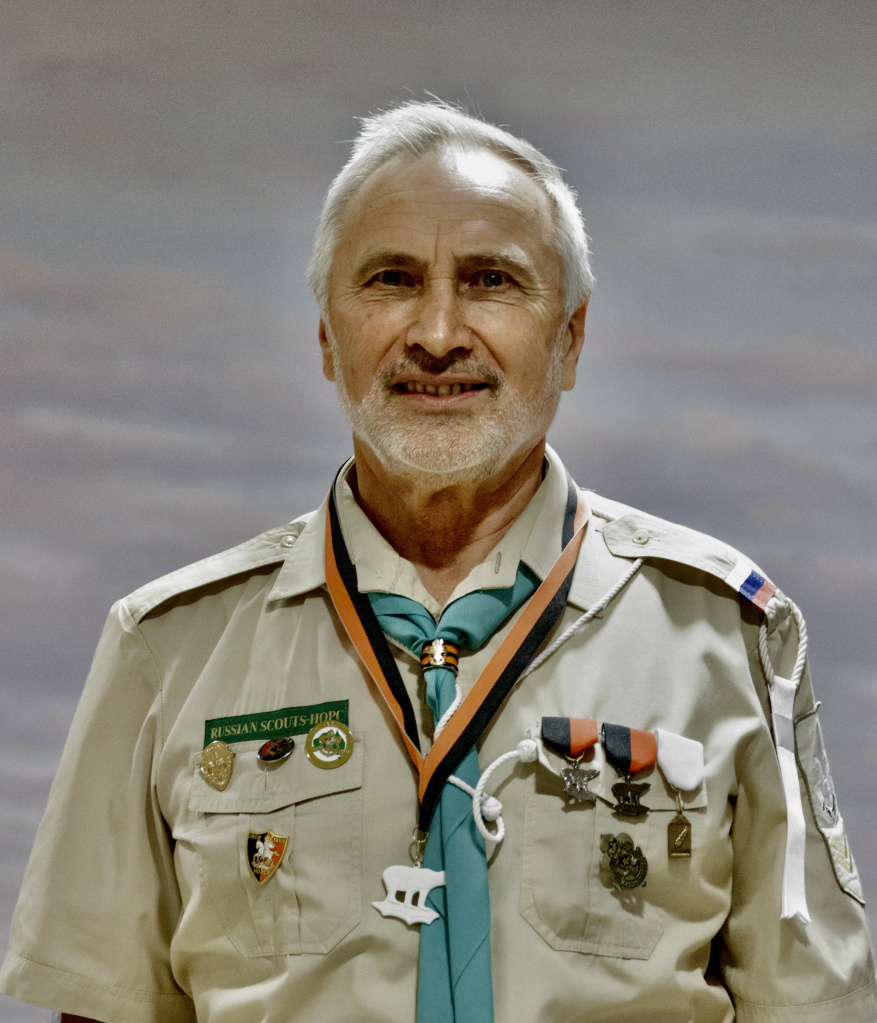
Mikhail Shakhmatov
Siberian Background
– Tell us please about the history of your family.
– My grandfather was a Siberian merchant from Chita. Basically, our origins are in Tobolsk. Before the revolution, he used to sew fur coats, that was his trade. For instance, he had orders for the Siberian army. After the revolution, he had to flee and ended up in China. That's where my father got married, and my brother and I were born.
There is a book about the history of our family. My older brother is a writer and speaks Russian better than I do as he was educated in China and Australia. I was ten years old when we moved to Australia, so I hadn't mastered the Russian language so well as he had. Nevertheless, I'm Russian. This is my background, and I did my best to preserve my Russian language. I have managed to do it through years of working with the Russian organization.
My father was a monarchist throughout his whole life. His wish was to go back to his homeland. He used to say that Russia would surely rise again. He was born in 1901 and lived to the age of 99. He was happy to see that Russia had returned the tricolor flag. There were tears in his eyes: "I've lived to see it."
– Have you ever visited Russia?
– Yes, indeed. I always wanted to visit Russia, and when I got the chance to go there in 1993, I did. One of the objectives was to help Russia in the development of Scouting. I took part in conferences and communicated with many people. I visited Moscow, Kiev, and Belarus. I managed to find my relatives. We had been the only ones in our family who moved abroad, all our relatives stayed.
Seasoned Scout
– How did you become a scout?
– I was 11 to 12 years old at the time, and in the second year, I was appointed a leader over a squad of five to six people. By the way, my mother was a scout in Harbin. The scout movement was present in every place where Russian émigrés lived. When we came to Australia, the country was isolated from the world, migrants were perceived differently, and we communicated within our colony. Everything was in Russian. My mom sent me to a Russian scout camp to help me progress. Soon I'll have the 60th anniversary of my membership in the Scout movement.
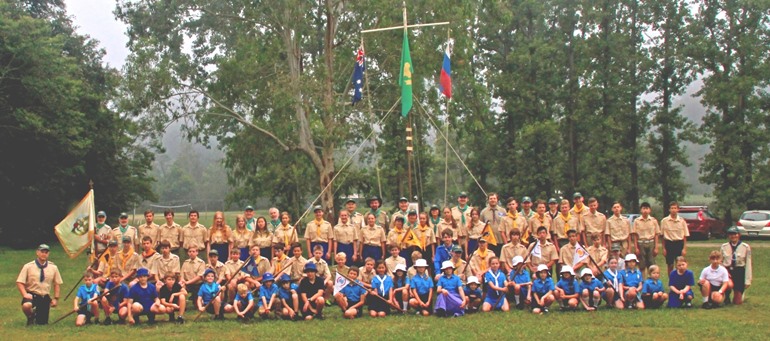
– What was taught at the camp back then, what did they talk about?
– Over the years, scouts have lived in their unique world according to the laws developed by our founder, Oleg Pantyukhov, back in Russia. I remember the leaders who took care of us. They were people of the old Russian upbringing, intellectuals, and children of Russian army officers. They were excellent speakers of Russian and had excellent manners.
One of our leaders had graduated from a Russian educational institution with the highest distinction. And when she heard us speaking Russian, she used to cover her ears with her hands (he is laughing). When we were children and teenagers, we didn't understand a lot of things. However, after all the years, I have tremendous respect for those people and thank them for what they taught us. We also strive to do the same but we can't be as good as they were. After all, we didn't have the same background. There is also a certain local influence. Nevertheless, we do our best to remain Russians.
– Scouts and Pioneers have organizations that are related in many ways. Did you know about the Soviet Pioneers when you were a child, and did you have any communication with them?
– Pioneers borrowed a lot of the scouting system leaving the faith in God behind. Now I believe that the Pioneer organization was useful to the children and was not bad. We had no communication with the pioneers, of course.
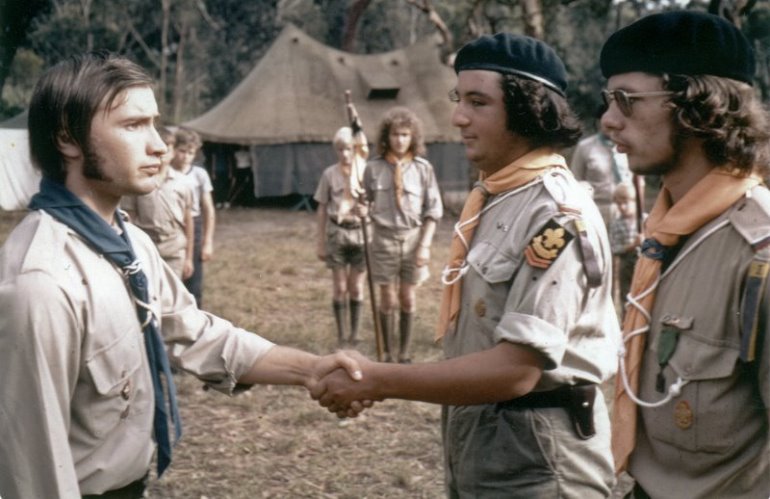
Russian Endurance
– What has made you stay in scouting for so many years?
– It captivated me right away. When I was a kid, I lived in the countryside. Nature provided us with food - mushrooms, berries, and fishing. When we came to Australia and I joined the Scouts, this outdoor survival was an ordinary thing for me, as opposed to a lot of other kids who lived in the city. What makes me stay? I've always loved the outdoors and felt the city pressuring me. Then there's the fellowship. When I was among the scouts, I realized what Russian culture and the Russian language were about, as well as what friendship meant. I still enjoy friendship with many of those who stayed with me in camp when I was 11 or 12 years old.
My first leader used to tell me that children were extremely important, they had to be taken care of all the time. And I remembered that as I moved up the scouting ladder. I have achieved everything I wanted. Now I wish to share my experience with them, help them have a happy childhood, and keep them away from street life.
I find it important to hand the organization over to the young generation so that they continue to share the Russian language, culture, and sense of the scouting family that keeps us safe from everything. Thus, children can see that there is another world, and not just what is going on around them. Our task is good deeds. We clean monasteries. We also clean cemeteries and give concerts in assisted-care facilities. And the older guys used to help celebrate Victory Day in the Australian cities.
– What is the difference between contemporary Russian children and the young people from your youth?
– Children are children. Many things depend on the parenting and on the family's efforts to raise the child. Certainly, we are not able to re-educate but we can contribute to it. For instance, the Russian language is often lost when children grow up in mixed families, whereas our organization helps to preserve it for many years.
– What has the Scout Movement given to your children?
– I have four of them. They speak the language and remember a lot of what they were taught about. Back in their childhood, they sometimes didn't like being scouts. Why should you go to a boring meeting rather than play soccer? However, when they grew up and became parents, they understood and reconsidered a lot of concepts. They are grateful to me for encouraging their involvement in scouting. Now they teach their children everything they know.
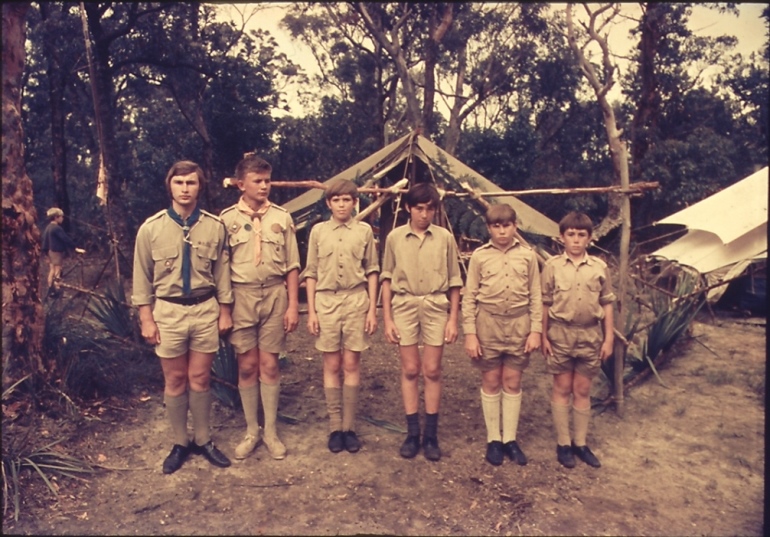
Avoid losing the Russian language
– How many members are there in NORS?
– We arrange camps with an average of 80 children per session. Our law requires having one leader per seven children. We have young people and the older generation doing this work. Those who are 25-30 years old are often unable to give their time to Scouting. They are busy with their families and their personal issues. Nevertheless, the organization is active and doing well.
- I know that children in the camp listen to lectures on Russian history and culture. Who prepares these lectures?
– Our leaders are representatives of various professional backgrounds, including teachers. They have extensive experience and prepare a comprehensive program. Representatives of the clergy also visit the camp.
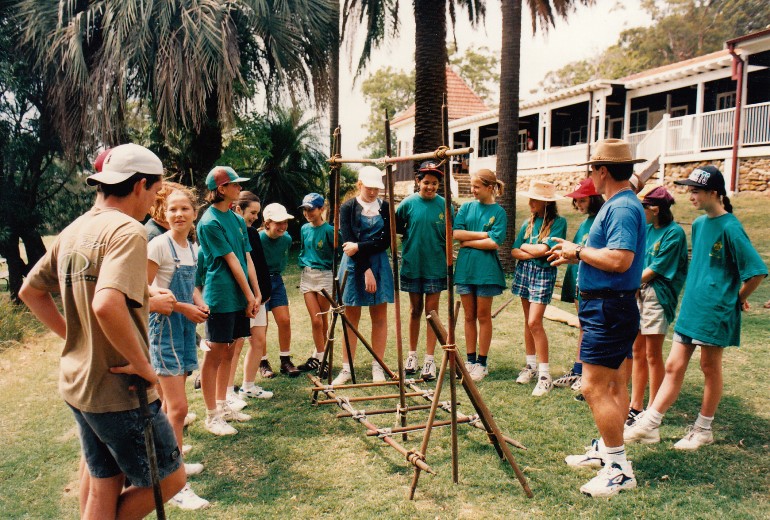
– Are the children interested?
– Kids are kids. When I was a kid, didn't like boring classes. A lot depends on how this or that information is presented. It can be in the form of a performance, for example. Our leaders have experience in doing that. Some children are quite familiar with Russian history and culture studying them in Russian schools. However, children who do not attend Russian schools and do not speak Russian come to our camps. Having spent two weeks with us, they begin to understand and communicate.
– What makes contemporary children come to scouting? Do parents bring them?
– As a rule, parents initiate it. Many children are raised in mixed families or mothers bring up their children alone. I think the most important thing is to help children who need help. Here they gain a scout family, love, and friendship. What encourages them to do that? We traditionally have a very high level of discipline, we pay a lot of attention to it because it's about safety. Yet, kids enjoy marching, commanding, and earning their stripes. It's a game that's fun for them and they benefit from it. The kids are eager to go to the camp and look forward to the next meeting.
– How often do you meet descendants of Russians who do not speak the language of their ancestors? For instance, a person's last name is Russian, but he/she doesn't know the language.
– Yes, this is common, especially with the third generation. It is usually the case when individuals withdraw from the Russian community, church life, and scout activities as well. I am also a third-generation migrant. Nevertheless, I have preserved the Russian language. My children speak it too. They celebrate Russian holidays, follow some traditions, and teach them to their children. We make efforts to preserve the above. Once again, a lot of things depend on the parents. If the Russian spirit is cherished within the home, the children will grow up to be Russian as well.
Photo courtesy of Mikhail Shakhmatov
New publications

 Mikhail Kalatozov, a director who transformed the world of cinematography in many ways, was born 120 years ago. He was a Soviet film official and a propagandist. Above all, he was capable of producing movies that struck viewers with their power and poetic language.
Mikhail Kalatozov, a director who transformed the world of cinematography in many ways, was born 120 years ago. He was a Soviet film official and a propagandist. Above all, he was capable of producing movies that struck viewers with their power and poetic language.  Ukrainian authorities have launched a persecution campaign against the canonical Ukrainian Orthodox Church (UOC), the biggest one in the country's modern history. Over the past year, state sanctions were imposed on clergy representatives, searches were conducted in churches, clergymen were arrested, criminal cases were initiated, the activity of the UOC was banned in various regions of the country, and monasteries and churches were seized.
Ukrainian authorities have launched a persecution campaign against the canonical Ukrainian Orthodox Church (UOC), the biggest one in the country's modern history. Over the past year, state sanctions were imposed on clergy representatives, searches were conducted in churches, clergymen were arrested, criminal cases were initiated, the activity of the UOC was banned in various regions of the country, and monasteries and churches were seized.  When Nektary Kotlyaroff, a fourth-generation Russian Australian and founder of the Russian Orthodox Choir in Sydney, first visited Russia, the first person he spoke to was a cab driver at the airport. Having heard that Nektariy's ancestors left Russia more than 100 years ago, the driver was astonished, "How come you haven't forgotten the Russian language?" Nektary Kotlyaroff repeated his answer in an interview with the Russkiy Mir. His affinity to the Orthodox Church (many of his ancestors and relatives were priests) and the traditions of a large Russian family brought from Russia helped him to preserve the Russian language.
When Nektary Kotlyaroff, a fourth-generation Russian Australian and founder of the Russian Orthodox Choir in Sydney, first visited Russia, the first person he spoke to was a cab driver at the airport. Having heard that Nektariy's ancestors left Russia more than 100 years ago, the driver was astonished, "How come you haven't forgotten the Russian language?" Nektary Kotlyaroff repeated his answer in an interview with the Russkiy Mir. His affinity to the Orthodox Church (many of his ancestors and relatives were priests) and the traditions of a large Russian family brought from Russia helped him to preserve the Russian language.

 The leaders of the Friends of the Great Russia cultural association (Amici Della Grande Russia) in Italy believe that the Western policy of abolishing Russian culture in Europe has finally failed. Furthermore, it was doomed to failure from the beginning.
The leaders of the Friends of the Great Russia cultural association (Amici Della Grande Russia) in Italy believe that the Western policy of abolishing Russian culture in Europe has finally failed. Furthermore, it was doomed to failure from the beginning.  Name of Vladimir Nemirovich-Danchenko is inscribed in the history of Russian theater along with Konstantin Stanislavski, the other founding father of the Moscow Art Theater. Nevertheless, Mr. Nemirovich-Danchenko was a renowned writer, playwright, and theater teacher even before their famous meeting in the Slavic Bazaar restaurant. Furthermore, it was Mr. Nemirovich-Danchenko who came up with the idea of establishing a new "people's" theater believing that the theater could become a "department of public education."
Name of Vladimir Nemirovich-Danchenko is inscribed in the history of Russian theater along with Konstantin Stanislavski, the other founding father of the Moscow Art Theater. Nevertheless, Mr. Nemirovich-Danchenko was a renowned writer, playwright, and theater teacher even before their famous meeting in the Slavic Bazaar restaurant. Furthermore, it was Mr. Nemirovich-Danchenko who came up with the idea of establishing a new "people's" theater believing that the theater could become a "department of public education."  "Russia is a thing of which the intellect cannot conceive..." by Fyodor Tyutchev are famous among Russians at least. December marks the 220th anniversary of the poet's birth. Yet, he never considered poetry to be his life's mission and was preoccupied with matters of a global scale. Mr.Tyutchev fought his war focusing on relations between Russia and the West, the origins of mutual misunderstanding, and the origins of Russophobia. When you read his works today, it feels as though he saw things coming in a crystal ball...
"Russia is a thing of which the intellect cannot conceive..." by Fyodor Tyutchev are famous among Russians at least. December marks the 220th anniversary of the poet's birth. Yet, he never considered poetry to be his life's mission and was preoccupied with matters of a global scale. Mr.Tyutchev fought his war focusing on relations between Russia and the West, the origins of mutual misunderstanding, and the origins of Russophobia. When you read his works today, it feels as though he saw things coming in a crystal ball...